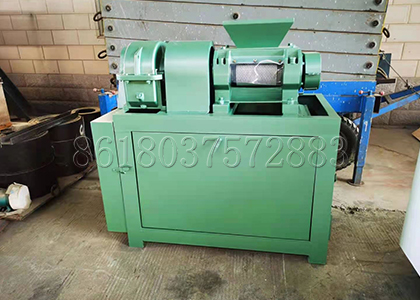Selecting the correct raw materials for NPK (Nitrogen, Phosphorus, and Potassium) granulation is crucial for the production of high-quality fertilizers. Each industry has specific needs and benefits that must be addressed, and understanding these aspects is essential for effective fertilizer granulation.
What Raw Materials Are Suitable for Fertilizer Granulation?
When considering materials for NPK granulation, several raw materials stand out due to their nutrient content and suitability for granulation processes.
1. Urea: Urea is a widely used nitrogen source. It is favored for its high nitrogen content and ease of handling in the granulation process. Urea’s solubility benefits the nutrient release when applied to the soil, enhancing plant growth effectively.
2. Ammonium Sulfate: This compound is another significant nitrogen source and includes sulfur, which is essential for plant development. Ammonium sulfate improves soil structure and fertility, making it a staple in fertilizer production.
3. Monoammonium Phosphate (MAP) and Diammonium Phosphate (DAP): These materials serve as excellent sources of phosphorus. They promote root development and flowering in plants, and their physical properties make them suitable for granulation.
4. Potassium Chloride (Muriate of Potash): As a primary potassium source, potassium chloride is ideal for granulation due to its high nutrient content and compatibility with other raw materials used in NPK fertilizers.
Choosing the right combination of these materials is essential to meet specific agricultural needs and ensure the effectiveness of the granulation process.
Click here for more details.

How Do Machine Features Impact Granulation Quality?
Granulation quality heavily depends on the machinery used. Key features that influence the granulation process include:
1. Double Roller Extrusion Granulators: These granulators are ideal for dry granulation processes. They use mechanical pressure to compact powders into granules without the need for additional liquids, making them suitable for materials sensitive to moisture.
2. Pelletizers and Extruders: These machines offer precise control over pellet size and shape, ensuring uniformity and consistency in the final product. The ability to adjust compression settings allows for flexibility in handling different raw materials.
3. Granulating Equipment with Advanced Control Systems: Modern granulators often feature automated control systems that regulate pressure, temperature, and mixing speeds. These systems enhance process efficiency and ensure consistent product quality.
4. High-Throughput Machinery: For large-scale production, machinery capable of handling 10 tons per hour (TPH) is essential. Equipment designed for high throughput ensures that production targets are met without compromising quality.
By investing in the right machinery, manufacturers can optimize the granulation process, resulting in superior fertilizer products.
How to Optimize the Granulation Process?
Optimizing the granulation process involves several steps, from the selection of raw materials to the use of advanced machinery. Consider the following aspects:
1. Raw Material Blending: Blending the raw materials correctly ensures uniform nutrient distribution in the final granules. The ratio of nitrogen, phosphorus, and potassium must be tailored to the specific needs of the target crops.
2. Moisture Content Management: Controlling the moisture content during the granulation process is critical. Excess moisture can lead to clumping, while insufficient moisture can hinder granule formation. Dry granulation techniques, such as those used in double roller extrusion, help manage moisture levels effectively.
3. Temperature Control: Maintaining optimal temperature during the granulation process ensures proper binding of raw materials. Temperature variations can affect the quality and consistency of the granules.
4. Particle Size Distribution: Ensuring uniform particle size distribution is essential for the effectiveness of the fertilizer. Equipment like pelletizers and granulators with adjustable settings can help achieve the desired particle size.
For those looking to enhance their fertilizer granulation capabilities, partnering with a professional fertilizer equipment manufacturer like Yushunxin can provide access to cutting-edge machinery and technical expertise.

Why Partner with a Professional Manufacturer?
Partnering with a reputable manufacturer ensures access to high-quality equipment and support services. A professional manufacturer offers:
1. Advanced Machinery: High-performance granulators, pelletizers, and extruders designed for optimal granulation processes.
2. Expert Guidance: Technical support and consultancy services to help select the best raw materials and optimize granulation procedures.
3. Custom Solutions: Tailored equipment solutions to meet specific production requirements, including high-capacity machinery capable of handling up to 10 TPH.
4. Reliable Support: Ongoing maintenance and support services to ensure continuous production efficiency.
In conclusion, selecting the right raw materials and utilizing advanced machinery are critical steps in optimizing NPK granulation. By understanding the specific needs of the fertilizer industry and leveraging the expertise of professional manufacturers like Yushunxin, producers can achieve superior granulation results and meet the demands of modern agriculture. You can visit: https://www.extruder-granulator.com/10-t-h-npk-fertilizer-granulation-line/

